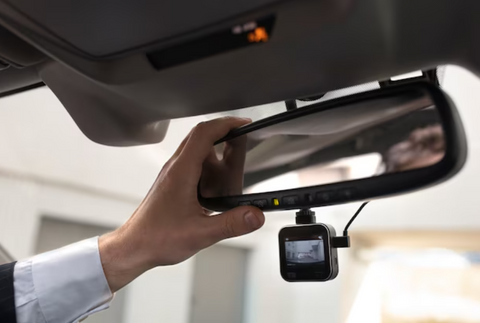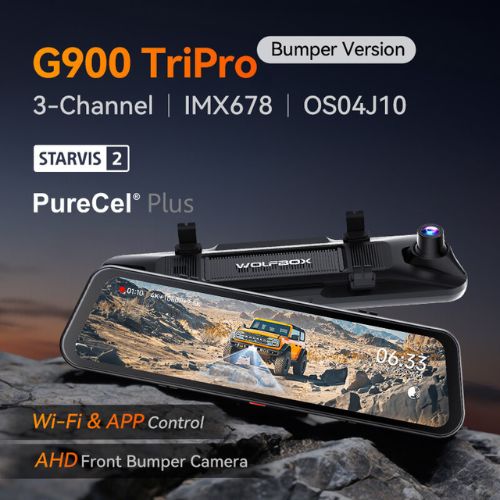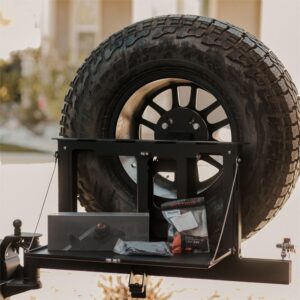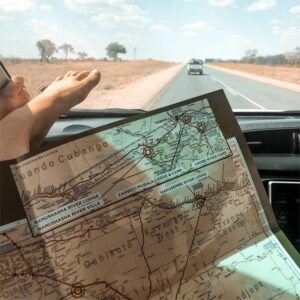-Nico, 22th Nov. 2022
Is My Dash Cam Footage Admissible in Court?
Dashcams are a type of camera that can be mounted on a vehicle's dashboard. Dashcams do not just have to be used in cars, they can also be used in motorcycles, boats, and even planes. Dashcams come with various features, from night vision to motion detection. They can also come with a built-in GPS system that records the speed and location of where the dashcam is being used at any given time.
A dashcam will record everything that happens on the road as you drive so you will have video evidence if there is an accident or if someone tries to steal your car.
This article will discuss:
-What makes a dash cam footage system admissible?
-How do you design a valid dashboard camera footage?
-How do you use it as evidence?
-What are the best practices for designing dashboard camera systems?
And much more. So stick around!
- How to Prepare Dash Cam Footage for Court
- Preparing Your Dash Cam Footage Using a Phone or Tablet
- How to Use Dash Cam Footage in Court Cases
- What Types of Dash Cam Footage are Valid?
- How to Design a Valid Admissible Dash Cam Footage System
- Tips: How to Get the Best Possible Results from Your Dash Cam Footage in Court
- Inadmissible Dash Cam Footage and What Categories are Exempt

How to Prepare Dash Cam Footage for Court
The first thing that you should do is check the device's settings. Make sure that the camera has been set to record in 1080p, 30 frames per second, with a resolution of 1920x1080 pixels. You can check this by going into the settings menu on your device and looking at the video resolution setting.
If your camera doesn't have this option, or if it appears as though it was not set up properly, then you may need to replace your memory card with one that supports HD recording.
Next, make sure that your video quality is good enough for playback in court. Check out our tips below for making sure that it looks good on TV screens, laptops, and tablets!
Dash Cam Footage and Their Role in the Legal System
Dash cam footage is an important part of the legal system. It helps to provide evidence for cases that would otherwise be difficult to prove. Dashcam footage can be used in cases of traffic violations, accidents, and crimes.
The admissibility of dashcam footage is determined by the law in each state. Some states allow it as evidence while other states don't allow it because they consider it a breach of privacy.
Live video evidence is also not admissible in court but can be used for surveillance purposes or by law enforcement agencies for training purposes.
A dash cam is a camera that is typically installed in the front of a vehicle and records the view ahead of the vehicle. Dash cams are most often used as a means of protection from insurance scams, but they are also used by law enforcement agencies to gather evidence.
A dash cam is typically mounted on the dashboard or windshield and records everything that happens in front of it.
It can be helpful for drivers because it provides evidence if there is an accident or if an incident occurs on the road that may be disputed. It can also help with parking disputes and other incidents on public property.
Some people use their dash cam to record scenic drives, like when they are going off-roading or through mountains. Others use them for documenting their trips so they have video footage to share with friends and family members who weren’t able to join them on the trip.

Preparing Your Dash Cam Footage Using a Phone or Tablet
Preparing your dash cam footage using a phone or tablet is a must if you want to use it for any purpose. There are many apps that will help you edit and prepare your video for uploading to social media, saving it as a video file, or for sharing it with friends.
Part 1. Preparing your Dash Cam Footage on your Android Device
The first step to preparing your dash cam footage on your Android device is plugging in the device to a power source. You may need to download a video conversion app onto your computer if you don’t already have one.
This includes downloading a video conversion app onto your computer and then plugging in the device to a power source before finally converting the video files into MP4 format for playback on various devices. It is also worth noting that you can download a conversion app to your phone and then convert videos on the go. The most commonly used video file formats for uploads are MP4, MOV, WMV, and AVI.
Part 2. Preparing your Dash Cam Footage on iPhone or iPad
Dashboard cameras are becoming more and more popular. Whether it is because of the increase in the number of accidents on the roads or people's desire to have a way to record evidence, dashboard cameras are a great investment for any driver.
The footage from these cameras can be used for many things - from proving your innocence in an accident to making sure that you were not speeding. But how do you prepare dashboard camera video on iPhone?

How to Use Dash Cam Footage in Court Cases
Dash cams are becoming more and more popular in the United States, as people are looking for ways to protect themselves from insurance fraud.
Dash cam footage is often used as evidence in court cases. But not all dashcam footage is admissible, so it is important to know how to make a video admissible in court.
The following steps should be taken when using dashcam footage:
- Include the date and time of the video
- Explain why you are recording
- Have a neutral person introduce the video
- Make sure that your car number plate is visible on the screen at all times
What Types of Dash Cam Footage are Valid?
Dash cam footage is a type of video footage that is recorded from a dashboard-mounted camera. Dash cam videos are often used in legal proceedings to establish the truth in court.
There are different types of dash cam footage, such as:
-Video captured by the dash cam’s rear-view mirror
-Video captured by the dash cam’s front windshield
-Video captured by the dash cam’s side window
-Video captured by the dash cam’s rear window
How to Design a Valid Admissible Dash Cam Footage System
Dashboard cameras are becoming popular for their ability to provide footage of accidents and other incidents. These cameras are often used by drivers, truckers, or anyone who might be involved in an accident. The footage from these cameras can be used as evidence in an insurance claim or court case.
The footage from these cameras should be admissible in court if the system is designed correctly. This article will outline what is necessary to make a dash cam system admissible and how to design it accordingly.

Tips: How to Get the Best Possible Results from Your Dash Cam Footage in Court
Dashcam footage is important evidence in court cases. However, it can be difficult to determine the best way to present this evidence. The following tips will help you provide the best possible results from your dashcam footage in court.
1) Make sure that you are following the law to a T and never violate any traffic laws or speed limits while filming.
2) Make sure that you have enough footage of the incident so that there is no missing information.
3) Make sure that your camera is not too close to your vehicle or too far away from it, as this could distort what actually happened during the incident.
4) Keep a log of when and where you were driving so that if needed, law enforcement can verify your whereabouts at the time of an incident with ease.
5) Make sure that you are only recording when absolutely necessary as this will save space and battery life on your dashcam device.
Dash Cam Footage and What Makes it Valuable Evidence
Dash cams are becoming more and more popular as they offer a new way to capture evidence.
Dash cam footage is becoming increasingly valuable as the go-to source of evidence in many cases. Dashcam footage is also used in police investigations, insurance claims, and even court cases.
The reason dashcam footage is so valuable is that it offers a live feed of what happened before, during, and after an event. This often makes it a much better form of evidence than surveillance footage or witness testimony.
Inadmissible Dash Cam Footage and What Categories are Exempt
Dashcam footage is inadmissible in court if it violates the right to privacy.
Inadmissible dashboard cam footage includes, but is not limited to, the following categories:
- Footage that shows a person who has not consented to be recorded.
- Footage that captures a person’s image without their consent while they are engaged in a personal or private activity.
- Footage that captures a person’s image without their consent while they are located on private property and have an expectation of privacy.
Looking for the best dash cam for preparing footage admissible for court? Go For WOLFBOX G900 mirror dash cam!
The WOLFBOX G900 is a high-quality dash cam that captures onto an internal storage card, offering over 2TB of storage. The camera has a live video feed at 30fps and is able to capture up to 12 hours of footage on one battery charge. It also has motion detection technology meaning it will automatically save recordings when something occurs in the camera's field of view.
It is a great option for parking lots or car insurance purposes and getting footage admissible for court.
Get WOLFBOX G900 Mirror Dash Cam Now!






Leave a comment
This site is protected by hCaptcha and the hCaptcha Privacy Policy and Terms of Service apply.